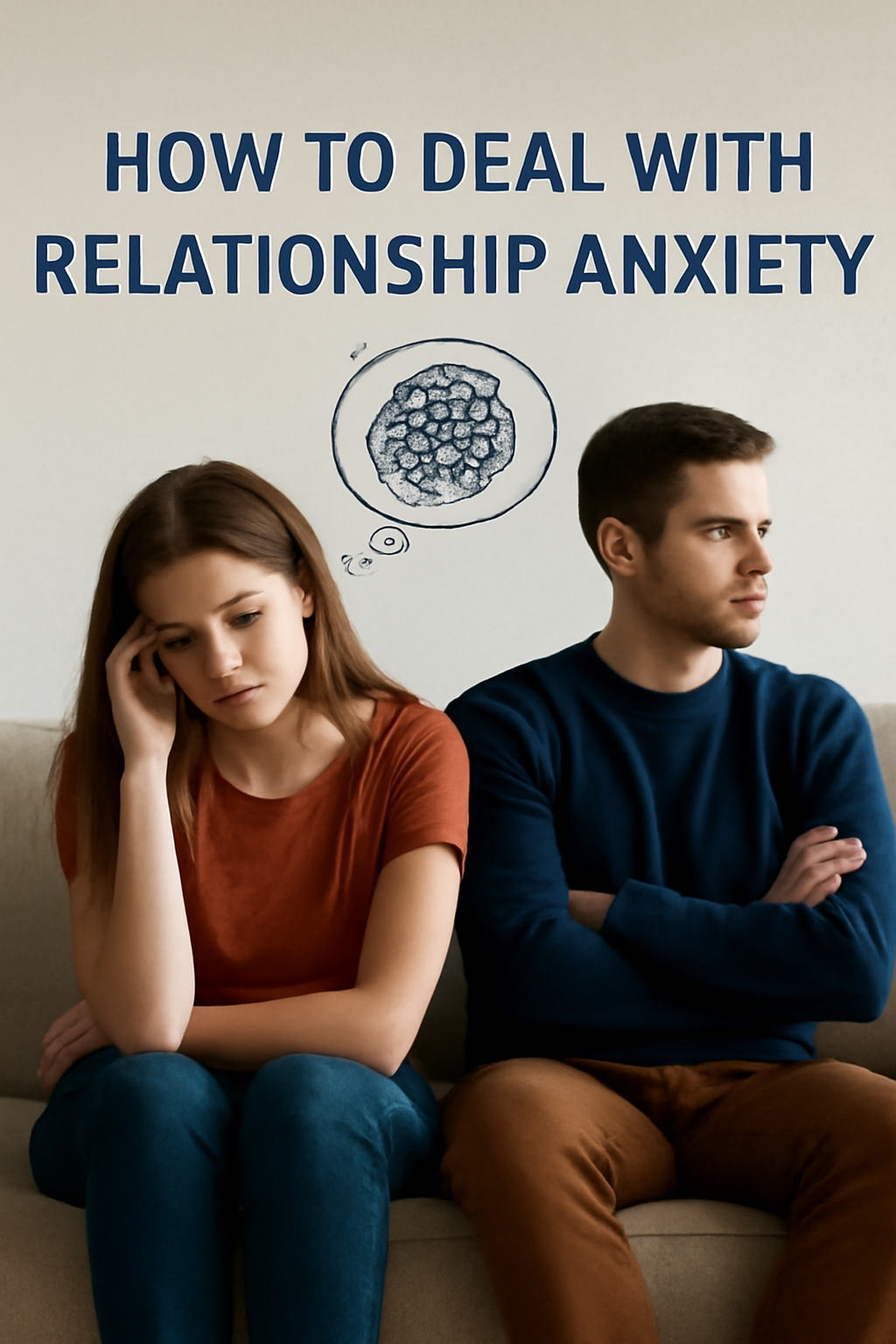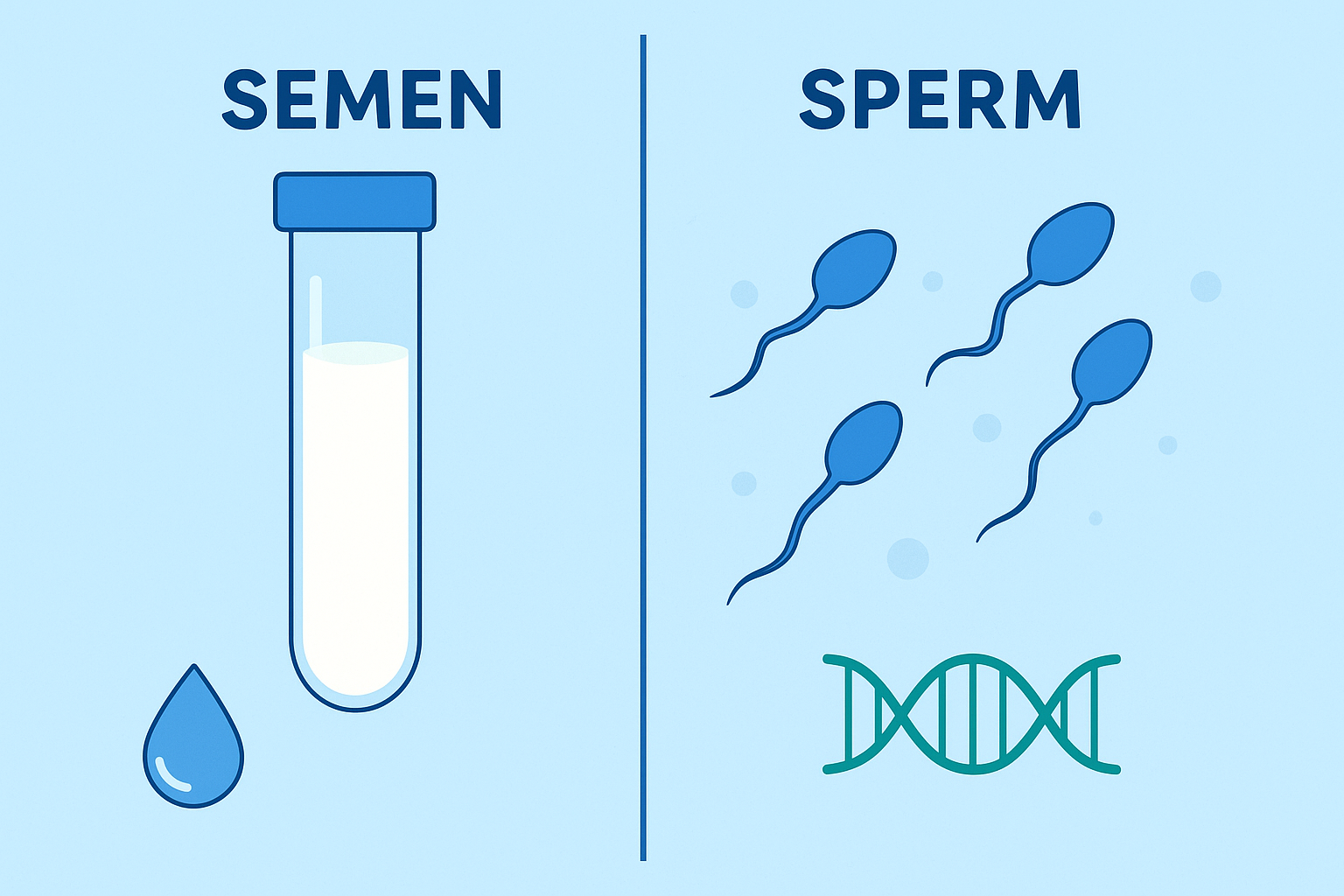Relationships are meant to bring joy, companionship, and emotional fulfillment. However, for many people, they can also trigger anxiety. Whether you’re newly involved or have been in a relationship for a while, relationship anxiety can be an overwhelming experience. It can create doubt, fear, and insecurity, and often causes unnecessary stress that prevents you from fully enjoying the connection with your partner. But the good news is, there are effective ways to manage and overcome this anxiety. In this article, we will explore practical strategies and techniques that can help you deal with relationship anxiety, improve communication, and ultimately foster healthier, more fulfilling relationships.
Also read: “Understanding Azoospermia: The Truth About Male Fertility and Health
What is Relationship Anxiety?
Before diving into how to deal with relationship anxiety, it’s important to first understand what it is. Relationship anxiety refers to the feelings of insecurity, doubt, and fear that arise within the context of a romantic relationship. These feelings may manifest in a variety of ways, such as:
- Constant worry about your partner’s feelings or commitment.
- Fear of rejection or being abandoned.
- Overthinking your partner’s words or actions.
- Jealousy or possessiveness.
- Difficulty trusting your partner.
These feelings are often fueled by past experiences, attachment styles, or fears of vulnerability. However, relationship anxiety is not limited to any one type of relationship—whether you’re dating casually, in a long-term commitment, or even married, anyone can experience this form of anxiety.
Why Does Relationship Anxiety Occur?
To effectively address relationship anxiety, it’s essential to understand why it occurs. Several factors contribute to this anxiety, including:
1. Past Experiences and Trauma
Negative experiences in previous relationships, such as betrayal, infidelity, or emotional neglect can leave lasting emotional scars. These experiences can heighten your sense of insecurity and cause you to project past hurts onto your current relationship.
2. Attachment Style
Our attachment style plays a significant role in how we approach relationships. People with anxious attachment styles tend to be more fearful of rejection and are more likely to experience relationship anxiety. These individuals often seek constant reassurance and struggle with feelings of insecurity.
3. Fear of Vulnerability
Opening up to someone emotionally can be a daunting task, especially if you’re afraid of being hurt or rejected. This fear can make it difficult to trust your partner, which in turn heightens anxiety.
4. Low Self-Esteem
When you don’t feel good about yourself, it’s easy to assume that your partner won’t either. Low self-esteem can lead to feelings of inadequacy and fear of not being “enough” for your partner.
5. Uncertainty About the Future
When you’re uncertain about the future of your relationship, anxiety can creep in. If you’re unsure where things are headed or feel like your partner isn’t as invested, the uncertainty can create emotional turmoil.
How to Recognize Relationship Anxiety
It’s important to differentiate between normal relationship concerns and relationship anxiety. Everyone experiences moments of doubt or insecurity in a relationship. This is completely natural. However, anxiety becomes a problem when it significantly impacts your mental health, your behavior, or your relationship dynamics.
Some common signs of relationship anxiety include:
- Excessive reassurance-seeking: Constantly asking your partner if they love you or if they’re happy in the relationship.
- Obsessive thoughts: Thinking about your partner’s actions, words, or texts all the time, sometimes to the point where it interferes with your daily life.
- Jealousy: Feeling threatened by other people in your partner’s life or questioning their loyalty.
- Self-sabotage: Pushing your partner away or acting distant out of fear of being hurt or abandoned.
- Constant worry: Overthinking small issues and assuming the worst-case scenario.
If you notice these patterns in yourself, it’s important to take proactive steps toward addressing them.
Practical Strategies to Deal with Relationship Anxiety
Dealing with relationship anxiety may take time, but with the right strategies, you can find peace and build a healthier relationship with yourself and your partner. Here are some practical tips to help manage anxiety in your relationship:
1. Acknowledge Your Anxiety
The first step in overcoming relationship anxiety is acknowledging that it exists. It’s easy to fall into denial or avoid confronting your feelings, but addressing the issue head-on is essential for healing. Take the time to reflect on your emotions and understand what triggers your anxiety. Once you’re aware of the root causes, you can start to take steps toward addressing them.
2. Communicate Openly with Your Partner
One of the best ways to ease relationship anxiety is through open and honest communication. If you’re feeling anxious, talk to your partner about your feelings. Let them know what’s going on in your mind, and share your concerns. Chances are, your partner will appreciate your honesty and may offer reassurance or support that helps alleviate your anxiety.
However, it’s important to communicate without making accusations or placing blame. For example, instead of saying, “You never pay attention to me,” you can say, “I’ve been feeling a little insecure lately, and I would appreciate it if we could spend some more time together.”
3. Practice Self-Compassion
Anxiety often stems from a lack of self-acceptance or fear of not being “good enough.” Practicing self-compassion means being kind and understanding toward yourself, even when you’re feeling anxious or insecure. Acknowledge that it’s okay to have doubts, but that these feelings do not define your worth.
Try affirmations such as, “I am worthy of love and affection,” or “I am enough just as I am.” Over time, practicing self-compassion can help you reduce feelings of anxiety and build confidence in your relationship.
4. Challenge Negative Thought Patterns
Relationship anxiety often involves a lot of negative thinking. You may find yourself imagining worst-case scenarios or assuming that your partner is losing interest in you. It’s essential to challenge these thoughts by asking yourself whether they are based on facts or just your fears.
When you catch yourself spiraling into negative thinking, pause and reframe the thought. For example, if you’re thinking, “My partner didn’t text me back quickly, they must be mad at me,” reframe it to something more rational, like, “Maybe my partner was busy, and it’s not a reflection of how they feel about me.”
5. Focus on Building Trust
Trust is the foundation of any healthy relationship. If you struggle with trust due to past experiences or personal fears, it’s important to work on building trust with your partner. This doesn’t mean you need to overlook red flags or ignore genuine concerns, but it does mean that you should give your partner the benefit of the doubt and communicate openly when you feel uncertain.
Trust can also be built by being dependable and consistent in your own actions. As you prove to yourself and your partner that you can rely on each other, your anxiety may decrease.
6. Engage in Mindfulness and Relaxation Techniques
Mindfulness and relaxation exercises can be incredibly helpful in reducing anxiety. Practices like meditation, deep breathing, or yoga can help you ground yourself and manage the physical symptoms of anxiety. These techniques can also help you stay present in your relationship rather than worrying about hypothetical situations.
Taking just 10-15 minutes a day to practice mindfulness can create a calming effect and help you feel more centered in your relationship.
7. Consider Professional Help
If relationship anxiety continues to overwhelm you despite your efforts to manage it, seeking professional help may be beneficial. A therapist or counselor can help you explore the root causes of your anxiety and provide tools and strategies to cope with it more effectively. Therapy can also help address underlying issues such as low self-esteem, past trauma, or unhealthy attachment patterns.
8. Set Boundaries
Healthy boundaries are essential for any relationship to thrive. Setting boundaries ensures that both partners have space for their individual needs and that one person doesn’t become overly dependent on the other for emotional reassurance. Establishing boundaries can reduce anxiety by giving you a sense of control and security.
Conclusion: Embrace the Journey to Peace
Dealing with relationship anxiety isn’t about eliminating all feelings of doubt or fear; it’s about learning how to manage them in a healthy way. It requires self-awareness, open communication, and the willingness to work through your emotions. By acknowledging your anxiety, practicing self-compassion, building trust, and seeking professional help if needed, you can create a more secure and fulfilling relationship.
Remember, anxiety is a natural part of being human, and it doesn’t have to define your relationship. Take things one step at a time, and embrace the journey toward peace and emotional fulfillment in your romantic life.





[…] Also read: How to Manage Relationship Anxiety: A Complete Guide to Finding Peace […]